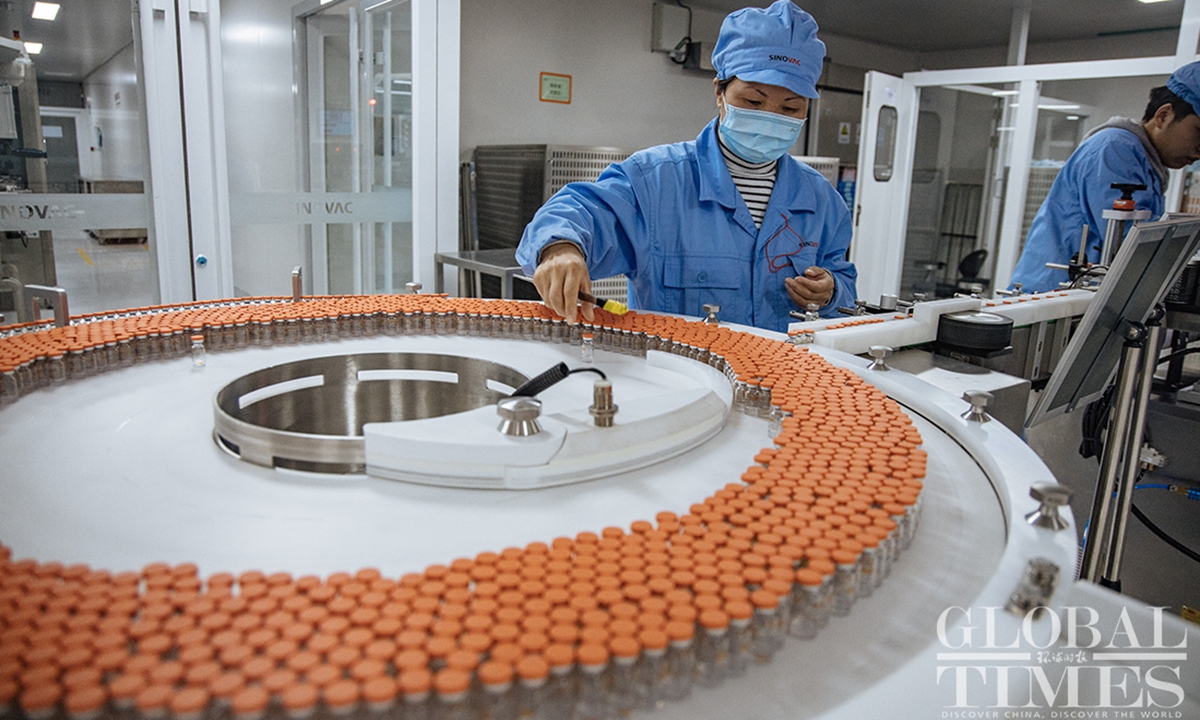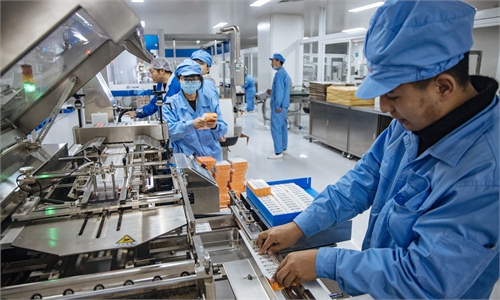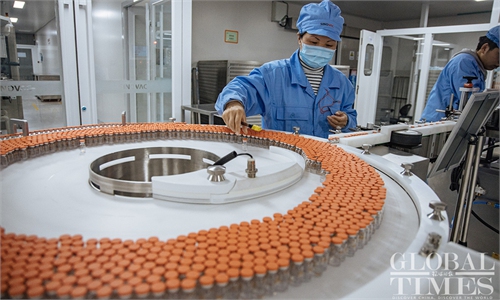
Photo: Li Hao/GT
China's leading vaccine maker Sinovac is working around the clock to prepare for mass production, with the first production line to secure 300 million doses of a COVID-19 vaccine annually, the Global Times learned after an exclusive visit to the company's plant in Beijing.
The company aims to complete its second facility by the end of 2020 to double the annual production capacity to 600 million doses.
The current production line operates almost 24 hours a day and staff work on rotating shifts to ensure the large-scale output of the COVID-19 vaccine, workers on the production line told the Global Times on Sunday.
China plans to vaccinate 50 million high-risk people on an emergency basis by the Chinese Lunar New Year, which falls on February 12, 2021, to cope with the possible spread of the virus during the coming travel peak for the Spring Festival holidays, when the largest annual human migration in the world occurs, Chinese authorities confirmed at an internal training session on potential mass inoculation on Wednesday.
Sinovac has been working with Brazil, Turkey and Indonesia on Phase-III clinical trials. Sinovac will send the third batch of COVID-19 vaccine to its Brazilian partner Butantan Institute in Sao Paulo state on Sunday evening for local mass vaccination scheduled in January.
The Global Times saw that the Chinese inactivated vaccine candidate called CoronaVac goes through a complex packaging process - from vaccine bulk grouting to finished-product packaging - before being shipped around the world.
The vaccine packs are stored at 2C to 8C. But thermal stability tests have shown the vaccine can be effective for more than one month at 25C and more than 20 days at 37C.
The entire production chain uses advanced digital technology to strictly monitor each and every step, with manual double-checks at every step.
The vaccine pulp developed from the inactivated virus is encapsulated either in vials or separate needles. The latter is preferred due to its simpler operation, shorter procedure, and better conservation of vaccine pulp. Needles and syringe bottles used for injections have to be sterile and disposable.
Drug regulators from several countries, including Brazil's National Health Surveillance Agency, have visited the company's workshops to inspect its protocols and technology before giving official approval of the vaccine registration in their own countries.



